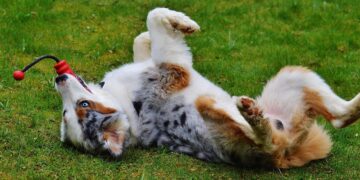Mastering the Art of Dog Care: Essential Tips for a Happy and Healthy Furry Friend
Dogs are more than just pets – they are loyal companions, family members, and beloved friends. As a responsible dog owner, it is essential to provide your furry friend with the care and attention they need to lead a happy and healthy life. From proper nutrition to regular exercise and grooming, there are many aspects of dog care that contribute to your pet’s overall well-being. In this article, we will explore some essential tips for mastering the art of dog care and ensuring your furry friend’s happiness and health.
Proper Nutrition
One of the most important aspects of dog care is providing your pet with a balanced and nutritious diet. Just like humans, dogs need a variety of nutrients to stay healthy and active. When choosing a dog food, look for high-quality ingredients, such as meat, vegetables, and whole grains. Avoid foods that contain fillers, artificial preservatives, and additives.
It is also important to feed your dog the right amount of food for their size, age, and activity level. Overfeeding can lead to obesity and other health problems, while underfeeding can result in malnutrition. Consult with your veterinarian to determine the best diet plan for your dog and monitor their weight regularly to ensure they are maintaining a healthy body condition.
Regular Exercise
Exercise is essential for your dog’s physical and mental well-being. Regular exercise helps to keep your pet at a healthy weight, improve their cardiovascular health, and prevent behavioral issues related to boredom and excess energy. Depending on your dog’s breed, age, and overall health, they may require different types and amounts of exercise.
Some dogs, such as working breeds or high-energy breeds, may need more vigorous exercise, such as running, hiking, or agility training. Other dogs, such as senior dogs or small breeds, may benefit from gentler forms of exercise, such as walking, swimming, or playing in the backyard. Tailor your dog’s exercise routine to their individual needs and abilities to keep them happy and healthy.
Regular Veterinary Care
Regular veterinary care is essential for maintaining your dog’s health and catching any potential issues early. Schedule annual check-ups with your veterinarian to ensure your pet is up to date on vaccinations, parasite prevention, and overall wellness. Your veterinarian can also provide guidance on nutrition, exercise, and other aspects of dog care.
In addition to annual check-ups, it is important to monitor your dog’s health at home and seek veterinary care if you notice any changes in their behavior, appetite, or appearance. Common signs of illness in dogs include lethargy, vomiting, diarrhea, coughing, sneezing, and changes in appetite or water intake. If you are ever unsure about your dog’s health, don’t hesitate to contact your veterinarian for advice.
Grooming and Hygiene
Grooming and hygiene are important aspects of dog care that contribute to your pet’s overall health and well-being. Regular grooming helps to prevent matting, shedding, and skin issues, as well as keeping your dog looking and feeling their best. Depending on your dog’s breed and coat type, they may require different grooming routines.
Brush your dog’s coat regularly to remove loose hair and prevent matting. Bathe your dog as needed, using a gentle dog shampoo that is formulated for their specific coat type. Trim your dog’s nails regularly to prevent overgrowth and discomfort. Clean your dog’s ears and teeth regularly to prevent infections and dental issues.
Socialization and Training
Socialization and training are important for your dog’s mental and emotional well-being, as well as for their safety and the well-being of others. Socialize your dog from a young age to help them feel comfortable around people, other animals, and new environments. Expose them to a variety of experiences, such as walks in the park, visits to the vet, and interactions with other dogs.
Training your dog is also important for their safety and happiness. Teach them basic commands, such as sit, stay, come, and leave it, to help them navigate the world and communicate with you effectively. Use positive reinforcement techniques, such as treats, praise, and play, to encourage good behavior and discourage unwanted behaviors.
Conclusion
Mastering the art of dog care requires dedication, patience, and a genuine love for your furry friend. By providing your dog with proper nutrition, regular exercise, veterinary care, grooming, socialization, and training, you can ensure they lead a happy and healthy life. Remember to consult with your veterinarian for guidance on your dog’s specific needs and monitor their health and well-being regularly. With the right care and attention, your dog will thrive and bring joy to your life for years to come.














































